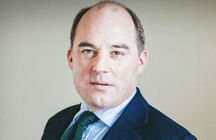Ben Wallace – 2022 Statement on the Defence Pay Award
The statement made by Ben Wallace, the Secretary of State for Defence, in the House of Commons on 19 July 2022.
I am today announcing the Government’s decision on pay for the armed forces for 2022-23.
The Government are taking the opportunity to support our aim to reshape defence and grow 21st-century skills, as outlined in the integrated review’s “Defence in a competitive age” Command Paper, and they also look forward to the recommendations of the Haythornthwaite review of armed forces incentivisation next year. This pay award supports wider recruitment and retention and addresses the requirements of smaller but highly skilled armed forces while recognising affordability.
The Government received the Armed Forces’ Pay Review Body report on 2022 pay for service personnel up to and including 1-star rank on 13 June 2022. This has been laid before the House today and published on gov.uk. The Senior Salaries Review Body’s 2022 report, which includes recommendations for the senior military, has been laid today by my colleagues in the Cabinet Office.
The Government value the independent expertise and insight of the AFPRB and SSRB and take on board the useful advice and principles set out in response to the Government’s recommendations outlined in the report.
The Government are accepting the AFPRB’s and SSRB’s recommendations in full for the 2022 pay round. This award will benefit the whole of the armed forces and is the biggest percentage uplift in 20 years, recognising their vital contributions and the cost of living pressures facing households.
Pay awards this year strike a careful balance between recognising the vital importance of public sector workers, while delivering value for the taxpayer, not increasing the country’s debt further, and being careful not to drive even higher prices in the future. Sustained higher levels of inflation would have a far bigger impact on people’s real incomes in the long run than the proportionate and balanced pay increases recommended by the independent pay review bodies now. Pay awards should be viewed in parallel with the Government’s £37 billion support package for the cost of living, which is targeted to those most in need.
In addition to this package, the MOD has frozen the daily food charge for our personnel. We are also limiting the increase in accommodation charges to 1%, ensuring the council tax rebate reaches those in military accommodation, and we are increasing the availability of free wraparound childcare from the start of the new academic year. Any service families facing hardships of any kind should approach their welfare officer so that further support can be discussed.
This year the AFPRB have recommended:
a headline increase in base pay for all members of their remit group (including medical and dental officers) of 3.75%;
that all accommodation charges are capped at 1%; and
rises and changes to other targeted forms of remuneration, and some increases to compensatory allowances. Where specified, these recommended changes are to be backdated to 1 April 2022.
The SSRB have recommended:
all members of the senior military, including medical officers and dental officers (MODOs), should receive a 3.5% consolidated increase to base pay;
no change to the current pay arrangements for MODOs:
2-star MODOs should continue to be paid 10% above the base pay at the top of the MODO 1- star scale, plus X-factor:
3-star MODOs should continue to be paid 5% above the base pay at the top of the MODO 2-star scale, plus X-factor.
that the minimum guaranteed increase to base pay (excluding X-factor) on promotion from
1-star to 2-star does not fall below 10%;
that the minimum guaranteed increase to base pay (excluding X-Factor) on promotion from 2-star to 3-star does not fall below 10%.
In the last five years the armed forces have received a cumulative pay award of 11%. This, combined with the 1% cap on accommodation charges, no rise in food charges, and 33% of service personnel also benefiting from an incremental rise in pay and an increase in the starting salary, after training, to £21,424, demonstrates how much the Government value the armed forces and their families.
Most overall pay awards in the public sector are similar to those in the private sector. Survey data suggests that median private sector pay settlement, which is the metric most comparable to these pay review body decisions, was 4% in the three months to May. Median full-time salaries are higher in the public sector, and public sector workers also benefit from some of the most generous pensions available.
Attachments can be viewed online at:
http://www.parliament.uk/business/publications/written-questions-answers-statements/written-statement/Commons/2022-07-19/HCWS237/


